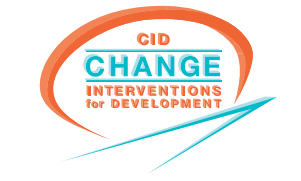Scaling Up Institutional Performance In support of ADB’s integrated approach to public sector management and institutional performance, which combines three strands of ADB’s work (public sector management, governance, and capacity development), we propose that learning programs be closely aligned with the country’s reform challenges. The intention was to obtain Level 3 results (a change in behavior) to increase the likelihood of achieving Level 4 results (demonstrating an impact on the organization’s goals). However, previous learning programs were constrained by the institutions that financed and supported them. Generally, learning programs targeted development practitioners, rather than the government officials who lead reforms and their partners (including civil society organizations, the private sector, and academia). Strategic communication and negotiation skills for reform are best learned in a realistic environment, where deep learning will more readily lead to application in their own programs. This institutional barrier needs to be addressed so that ADB can increase its focus on higher level results in operational work. In its October 2016 paper on Better Performing Institutions in ADB Developing Member Countries: Positioning ADB’s Approach to Public Sector Management and Institutional Performance, ADB noted that a sharper focus on institutional performance results is needed. ADB support aims to enhance the capacity of developing member country institutions to deliver better development results to their citizens. Engagement, coalition-building, and dialogue, are critical institutional capacities needed by developing member countries pursuing difficult, contentious, and challenging reform agendas. ADB seeks to provide politically smart support that factors in “political economy and reform readiness issues in a concrete and practical manner, rather than relying exclusively on technocratic blueprints of best practice.”10 The effectiveness of ADB-supported development projects can be promoted by integrating engagement mechanisms during project design and supervision. The Negotiating Strategic Change learning program has changed behaviors, created new capacity, and influenced attitude change. Targeted institutional support will optimize its utility for operational work. First, capacity development initiatives and learning programs need to focus on the learning needs of groups. These groups are drawn from organizations that are involved in addressing real-world reform challenges. Thus, financing mechanisms for capacity development initiatives need to be overhauled to create and nurture groups who work together to also learn together. Second, institutional capacity needs to be enhanced in neglected areas, such as multi-stakeholder engagement, coalition-building, strategic communication, and negotiation. Demand-side approaches to public sector management, which have been largely neglected, need to be bolstered. Third, the content and instructional design of learning programs should target behavior change. Instructional designs and facilitation that emphasize interactivity and participant engagement in role plays that focus on issues identified by participants as critical stumbling blocks to program effectiveness provide relevant learning experiences.11 Organizational systems, particularly leaders and management, need to create an environment that enables participants to apply what they learn to their own work.
It is difficult to assess whether reformers apply the knowledge and skills developed in workshop exercises to their own work, after attending a single workshop. The participants’ ability to apply what they have learnt will be moderated by the organizational environment. Where supervisors and organizational leaders provide encouragement and support, behavior change will more readily translate into new ways of doing work. Communication and information technology is increasing access to knowledge and learning opportunities. Smartphones and other online platforms could enhance the cost-effectiveness of capacity development programs and dramatically increase access to knowledge and learning opportunities across all developing member countries. As today’s reform leaders commit to implement the 2030 Sustainable Development Goals, they face complex challenges to reform. There is much that can be done to provide these leaders with the concepts and tools they need to mobilize support.
(The article was peer-reviewed by Chimi Thonden, senior education specialist, ADB, and Nils Boesen, consultant specializing in institutional development and governance.)
